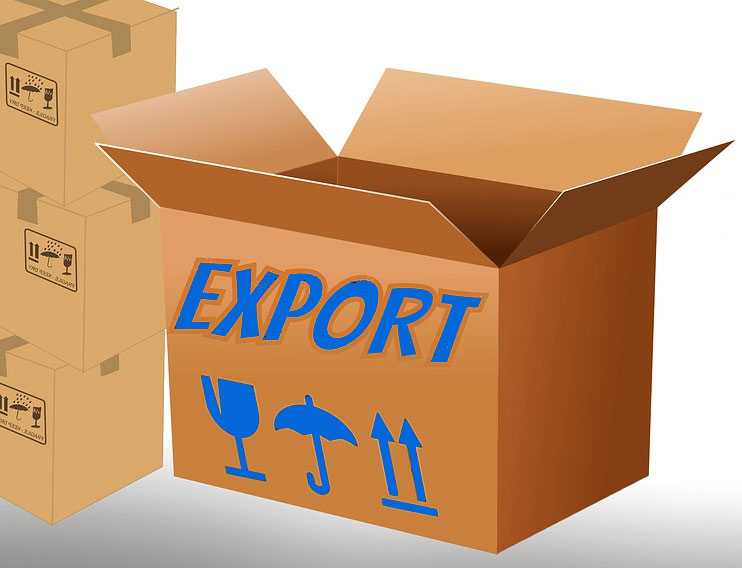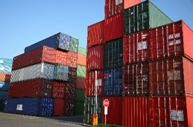
by logisticsplus | Mar 29, 2016 | News
 Exporting can seem like a daunting task to many small- and medium-sized businesses, but it can also be a great way to expand your customer base and grow your sales. Make no mistake, exporting can be a challenge. You have to take the time to select the right product, understand the applicable rules and regulations in both the U.S. and the country to which you are exporting, identify your potential customers, and find out about the different payment and shipping alternatives. Here are some tips for becoming a successful exporter.
Exporting can seem like a daunting task to many small- and medium-sized businesses, but it can also be a great way to expand your customer base and grow your sales. Make no mistake, exporting can be a challenge. You have to take the time to select the right product, understand the applicable rules and regulations in both the U.S. and the country to which you are exporting, identify your potential customers, and find out about the different payment and shipping alternatives. Here are some tips for becoming a successful exporter.
- Identify your potential market. If you’re interested in exporting, you need to identify the right foreign markets for your products. Information is readily available through government agencies and business-related organizations such as foreign trade associations, chambers of commerce, trade commission offices, and development centers (like the SBDC in PA). You can also visit www.export.gov to access a wealth of data that can assist you in identifying overseas markets for U.S. goods. Each foreign market has different trade barriers, import regulations, and technology considerations that may affect your exporting decisions.
- Assess your product potential. A product may be successful in the U.S., but that is no guarantee it will be successful in a foreign market. Preparing a product for export requires not just knowledge of the product, but also an awareness of the many unique characteristics of the market to which you are exporting. Cultural difference and local customs may also require product modifications in areas such as branding, packaging, and labeling. Awareness and sensitivity to these differences are critical to a successful product introduction.
- Know the export controls and licensing requirements. Exporting can expose your business to laws and regulations that you may not be familiar with. Different rules can impact your ability to successfully do business in foreign markets. Violation of these rules can have significant repercussions, including denial of our export privileges and fines.
- Investigate foreign country import controls. Before exporting your product to a foreign market, you need to identify whether the country you’re exporting to has any import controls related to the sale of your product. These can include prohibitions, restrictions, or import licensing requirements. Import documentation requirements and other regulations also vary by country.
- Understand U.S. export laws. As an exporter, you need to determine which federal department or agency has jurisdiction over the item you’re planning to export, and whether or not you will need an export license. The key in determining whether an export license is required for a given product is whether the item has a specific Export Control Classification Number (ECCN).
- Make sense of Incoterms. As an exporter, you need to understand the costs, responsibilities, rights, and obligations that accompany the use of a specific Incoterm. Every quotation or sales order must include a term of sale. If you fail to clearly identify the specific Incoterm to your customer, it can lead to an overestimation or underestimation of the costs associated with the goods you are selling (and ultimately a lost sale).
- Make sure you have the right insurance coverage. You need to understand the amount of insurance on your export transaction and who will be responsible in the event of loss or damage while the goods are in transit. Many freight forwarding companies will provide cargo insurance options to help address these risks.
- Hire a reliable freight forwarder. An international freight forwarder acts as an agent on your behalf and assists in moving your shipment from its U.S. origin to its foreign destination. Capable freight forwarders are familiar with the import rules and regulations of foreign countries, U.S. export regulations, methods of shipping, and required documentation. They can assist you in preparing pricing quotations by providing freight costs, port charges, documentation fees, insurance costs, and handling fees. They can also recommend packaging methods that will best protect your products during transport.
While the above tips are good for every exporter to know, if you work with an experienced and reputable freight forwarder, such as Logistics Plus, you won’t have to deal with too many of the details involved with exporting your goods to a foreign country. We have access to substantial shipping discounts for both international air and international ocean freight services, and our fees are very affordable. We can also provide you with valuable consultation on all aspects of global trade compliance, and we can even help you with financing solutions. Click the button on the left below to request more information, or the button the right to start the export quotation process.



by logisticsplus | Mar 15, 2016 | News
 As depicted in the circle image of the Logistics Plus (LP) logo, we have the experience and expertise to help shippers move their goods by any transportation mode, including GROUND, AIR, OCEAN, or RAIL. How did we acquire these capabilities? It all started twenty years ago with our first customer, GE Transportation (GET), a division of General Electric – one of the largest companies in the world. Back then, LP was GET’s lead logistics provider helping them move their products and parts across the country and around the world. Twenty years later, we’re still managing shipments across all transportation modes, but today we’re doing it for more than 2,000 customers and in dozens of countries around the world!
As depicted in the circle image of the Logistics Plus (LP) logo, we have the experience and expertise to help shippers move their goods by any transportation mode, including GROUND, AIR, OCEAN, or RAIL. How did we acquire these capabilities? It all started twenty years ago with our first customer, GE Transportation (GET), a division of General Electric – one of the largest companies in the world. Back then, LP was GET’s lead logistics provider helping them move their products and parts across the country and around the world. Twenty years later, we’re still managing shipments across all transportation modes, but today we’re doing it for more than 2,000 customers and in dozens of countries around the world!
 Ground Freight Transportation
Ground Freight Transportation
Our domestic ground freight transportation capabilities have enabled us to be recognized by Transport Topics magazine as a 2015 Top 50 freight brokerage firm in North America. Our non-asset ground services include complete less-than-truckload (LTL) capabilities with all of the top carriers in the country, and a full-range of truckload solutions using our network of thousands of national, regional and specialized freight carriers. Additionally, with our National Truckload (NTL) division, we offer select clients the option for a dedicated fleet of trucks and equipment. When it comes to North American ground transportation, our carriers, services and rates are among the best in the industry.
 Air Freight Transportation
Air Freight Transportation
For air freight transportation, we can handle both domestic and import/export shipment types. We have developed relationships with all of the major air freight carriers allowing us to negotiate the best combination of service, price, and speed on behalf of our customers. Our services include airport-to-airport, door-to-door, and even air charters. We are also a certified IATA cargo agent in both the U.S. and Mexico, meaning we get exclusive access to the top air freight and cargo carriers in the industry. When customers ship internationally with Logistics Plus, they can also tap our full-service Customs Broker Solutions division to help them with all aspects of global trade compliance.
 Ocean Freight Transportation
Ocean Freight Transportation
Similar to air freight, our ocean freight transportation services are available for both domestic (i.e., AK, HI, PR, USVI, and Guam) and import/export shipments. As a Non-Vessel-Operating Common Carrier (NVOCC), we have long-standing relationships with ocean carriers which allow us to obtain competitive rates for our customers and frequent sailings to and from all major ports of call. We can handle both full-container-load (FCL) and less-than-container-load (LCL) ocean shipments. For international shipments, our customs broker solutions staff is there to help with duties, tariffs, and all other clearance details. For imports, our remote location filing (RLF) status with U.S. Customs and Border Protection (CBP) allows us to clear shipments at any and all U.S. ports of entry.
 Rail Freight Transportation
Rail Freight Transportation
If you’re looking to reduce your transportation costs, rail and intermodal freight transportation are often good options. Not only can we help you manage your rail logistics, we can also help you arrange the necessary drayage services to get your shipments to and from the rail yards. Because of our skills in this area, some of our customers have even asked us to provide dedicated, rail freight logistics management solutions for them (see our Hero BX case study for a great example).
 Project Freight Solutions
Project Freight Solutions
Sometimes our customers have very unique or complex logistics projects that require a “multi-mode” approach to transportation. In these cases, the Logistics Plus Project Cargo division is ready to assist. Your logistics project will be customized for your situation—from a comprehensive, pre-shipment evaluation of potential risks, costs and delivery schedules, to route and port surveys, coordination of proper packaging of components, required documentation handling, and transportation mode analysis. Even if your cargo is oversized or heavy lift, our project cargo specialists can manage it all. Over the years, we’ve transported locomotives to Indonesia; imported solar modules into the U.S.; shipped wind turbines to Finland; hauled tugboats to Kuwait; and much more! In many cases, these shipments all required use of ground, air, ocean, and rail freight transportation – all modes we know how to manage.
If you’d like to request a free quote on your next ROAD, AIR, OCEAN, RAIL, or PROJECT FREIGHT shipment, simply click the button below to get started. We’re ready to help you with your single-mode or multi-mode transportation needs.


by logisticsplus | Mar 10, 2016 | News
 Import and export financing is much different, for example, than commercial lending, mortgage lending or insurance. There is a longer order-to-delivery cycle on products that are sold and shipped overseas, therefore, it takes longer to get paid. Extra time and energy are required to make sure that buyers are reliable and creditworthy. Careful financial management can mean the difference between profit and loss on each transaction.
Import and export financing is much different, for example, than commercial lending, mortgage lending or insurance. There is a longer order-to-delivery cycle on products that are sold and shipped overseas, therefore, it takes longer to get paid. Extra time and energy are required to make sure that buyers are reliable and creditworthy. Careful financial management can mean the difference between profit and loss on each transaction.
All sellers want to get paid as quickly as possible, while buyers usually prefer to delay payment, at least until they have received and resold the goods. This is true in domestic as well as international markets. Increasing globalization has created intense competition for imports and exports. Importers and exporters are looking for any competitive advantage that would help them to increase their sales. Flexible payment terms has become a fundamental part of any sales package.
- Selling on open account, which may be best from a sales standpoint, places all of the risk with the seller. The seller ships and turns over title of the product on a promise to pay from the buyer.
- Cash-in-advance terms place all of the risk with the buyer as they send payment on a commitment that the product will be shipped on time and it will work as promised.
To address these trade financing risks, there are two broad categories of trade finance:
- Pre-shipment financing to produce or purchase the material and labor necessary to fulfill the sales order.
- Post-shipment financing to generate immediate cash while offering payment terms to buyers.
Here are some additional thoughts to consider:
Financing can make the sale. Favorable payment terms make a product more competitive. If the competition offers better terms and has a similar product, a sale can be lost. In other cases, the exporter may need financing to produce the goods or to finance other aspects of a sale, such as promotion and selling costs, engineering modifications and shipping costs. Various financing sources are available to exporters, depending on the specifics of the transaction and the exporter’s overall financing needs.
Financing costs will vary. The costs of borrowing, including interest rates, insurance and fees will vary. The total cost and its effect on the price of the product and profit from the transaction should be well understood before a pro forma invoice is submitted to the buyer.
Financing costs increase with the length of terms. Different methods of financing are available for short, medium, and long terms. Exporters need to be fully aware of financing limitations so that they secure the right solution with the most favorable terms for seller and buyer.
The greater the risks, the greater the cost. The creditworthiness of the buyer directly affects the probability of payment to an exporter, but it is not the only factor of concern to a potential lender. The political and economic stability of the buyer’s country are taken into consideration.
So where can you turn for import and export financing solutions that help address these concerns?
Logistics Plus (LP), in strategic partnership with WorldBusiness Capital Inc. (WBC), provides a complete, logistics and financing solution for both U.S. and foreign companies. WBC is a commercial finance company that offers flexible term loans helping small and midsize businesses compete in the global marketplace. Our motto is “financing business across borders,” and the programs available include all of the following:
- Emerging Market Projects. Term loans for businesses and projects throughout Latin America, Asia, E. Europe, and Africa.
- U.S. Equipment Exports. Term loans for overseas buyers of new U.S.-made equipment, technology, and services.
- U.S. Trade Capacity Expansion. Term loans for U.S.-based commercial and industrial projects boosting trade competitiveness.
- Foreign Investment in U.S. Term loans for acquisitions, operations, joint ventures, and distribution in the U.S.
- Foreign Sales to U.S. Term loans for U.S. purchases of new foreign-made equipment, technology, and services – with specialized solutions for India-U.S., Mexico-U.S., and Turkey-U.S. transactions.

by Scott Frederick | Feb 25, 2016 | News
 Companies of all sizes are increasing their use of outsourced logistics services as they seek greater efficiency in their supply chains. Here is a 3PL checklist to help you find the best third party logistics partner for your situation. 3PLs bring valuable benefits to companies in a number of ways:
Companies of all sizes are increasing their use of outsourced logistics services as they seek greater efficiency in their supply chains. Here is a 3PL checklist to help you find the best third party logistics partner for your situation. 3PLs bring valuable benefits to companies in a number of ways:
- Reducing transportation costs. 3PLs often have scale and leverage advantages that allow them to negotiate and access better rates than shippers can do on their own. They can also eliminate unwanted administrative costs by efficiently finding and securing capacity, monitoring and auditing carrier and rate compliance, and executing optimal mode selection (all of this often with the aid of specialized technology).
- Improving customer satisfaction. 3PLs can support customer satisfaction improvement goals by helping with accurate order fulfillment, improving on-time pickups and deliveries, providing greater shipment visibility, and reducing losses and damages.
- Providing global expertise. 3PLs can help businesses navigate the more complex aspects of importing and exporting by providing documentation, customs brokerage, duty optimization, and freight forwarding solutions. This can help companies introduce their products to new markets or source lower-cost materials for production.
- Reducing supply chain risk. 3PLs can help mitigate risks by ensuring companies are using licensed and safe transportation carriers, providing logistics talent acquisition expertise, and staying abreast of special governmental and environmental rules and regulations.
With the above benefits in mind, here is a very simple 3PL checklist you may want to consider when evaluating your partner options:
Credibility?
- Is your potential partner financially stable with a long history of successful operations? Do they have reputable customers from whom they have received testimonials? Have they won any significant awards or recognition?
Assets or Non-Asset?
- Do they manage their own truck fleet or assets? Do they provide non-asset brokerage solutions? Do they have dedicated warehousing and do they manage warehousing using any of their own staff?
Domestic Operations?
- Are they able to manage all transportation modes, including LTL, truckload, expedited, rail, air, and ocean services? Do they have adequate staff with sufficient expertise to manage all aspects of domestic transportation? Can they provide dedicated staff and resources for a complete managed transportation solution?
Global Capabilities?
- Do they have global staff located around the world? Are they able to manage all aspects of imports and exports? Can they manage all international transportation modes, including ocean, air, ground, and rail? Can they manage complex project cargo from start until finish? Do they provide customs broker solutions and can they assist with global trade compliance?
Leading Technology?
- Do they have a capable transportation management system (TMS)? Do they have international freight forwarding track and trace capabilities? Do they have a warehouse management system (WMS)? Can their technology solutions be integrated into your back-office systems?
Ancillary Services?
- What additional services can they bring to your company? Can they help with things like global sourcing, specialized warehousing, linguistic solutions, cargo insurance, and financing options?
Cultural Fit?
- Do they have a customer service-oriented culture? Do they have a mission statement or mantra that resonates with you? Are they proud of, and do they showcase, their people? Do they have a history of successes and “going to bat” for their customers?
Hopefully this gives you a good starting checklist if you are, or will soon be, evaluating 3PL partners. Obviously, we feel very confident that Logistics Plus has the credibility, capabilities, and cultural fit that works well for most companies and industries. If you’d like to engage us in your evaluation process, request for quote (RFQ), or request for proposal (RFP) – or if you simply want to talk – just let us know. We’re here to help and we’re ready to do so.

Looking for more outside reading on this subject? Check out his article from SuppyChain247.com

by logisticsplus | Nov 5, 2015 | News
 The International Maritime Organization (IMO.org) has recently approved changes to the Safety of Life at Sea (SOLAS) Convention requiring the verification of container weights. Here are five things shippers should know – and do – in regards to the forthcoming revised rules for container weights:
The International Maritime Organization (IMO.org) has recently approved changes to the Safety of Life at Sea (SOLAS) Convention requiring the verification of container weights. Here are five things shippers should know – and do – in regards to the forthcoming revised rules for container weights:
- Verify All Container Weights!
All shippers will be responsible for verifying the weights of their containers before being loaded aboard any ship. A verified gross mass document should be handed to the shipping line, then the terminal, who will then determine whether or not to accept the container.
- Be Prepared!
The effective date of this new legislation is not until July 1st, 2016, but shippers need to start making arrangements now in order to ensure they are ready when its time.
- Don’t Risk It!
Not declaring the gross mass of your container, may not only lead to its rejection from the terminal but could also cost you a large sum of money in fines, sanctions or in some cases, even jail time.
- Pick A Verified Weighing Option:
Shippers have two options; they can either weigh the entire packed container using certified and calibrated equipment, or they can sum up the weights of each individual item utilizing an approved process.
- Talk To Your Freight Forwarder
If you are using a freight forwarder, make sure they are experienced and reputable (like Logistics Plus), and that you establish a well-founded communication system with them. This way you can ensure compliance on both sides, and prevent non-shipment or delays of any of your goods.
If you have any questions, feel free to contact the international experts at Logistics Plus at pricing@logisticsplus.com or click the button below to get a quick quote on your next international freight shipment.


 Exporting can seem like a daunting task to many small- and medium-sized businesses, but it can also be a great way to expand your customer base and grow your sales. Make no mistake, exporting can be a challenge. You have to take the time to select the right product, understand the applicable rules and regulations in both the U.S. and the country to which you are exporting, identify your potential customers, and find out about the different payment and shipping alternatives. Here are some tips for becoming a successful exporter.
Exporting can seem like a daunting task to many small- and medium-sized businesses, but it can also be a great way to expand your customer base and grow your sales. Make no mistake, exporting can be a challenge. You have to take the time to select the right product, understand the applicable rules and regulations in both the U.S. and the country to which you are exporting, identify your potential customers, and find out about the different payment and shipping alternatives. Here are some tips for becoming a successful exporter.



 Ground Freight Transportation
Ground Freight Transportation Air Freight Transportation
Air Freight Transportation Ocean Freight Transportation
Ocean Freight Transportation Rail Freight Transportation
Rail Freight Transportation


